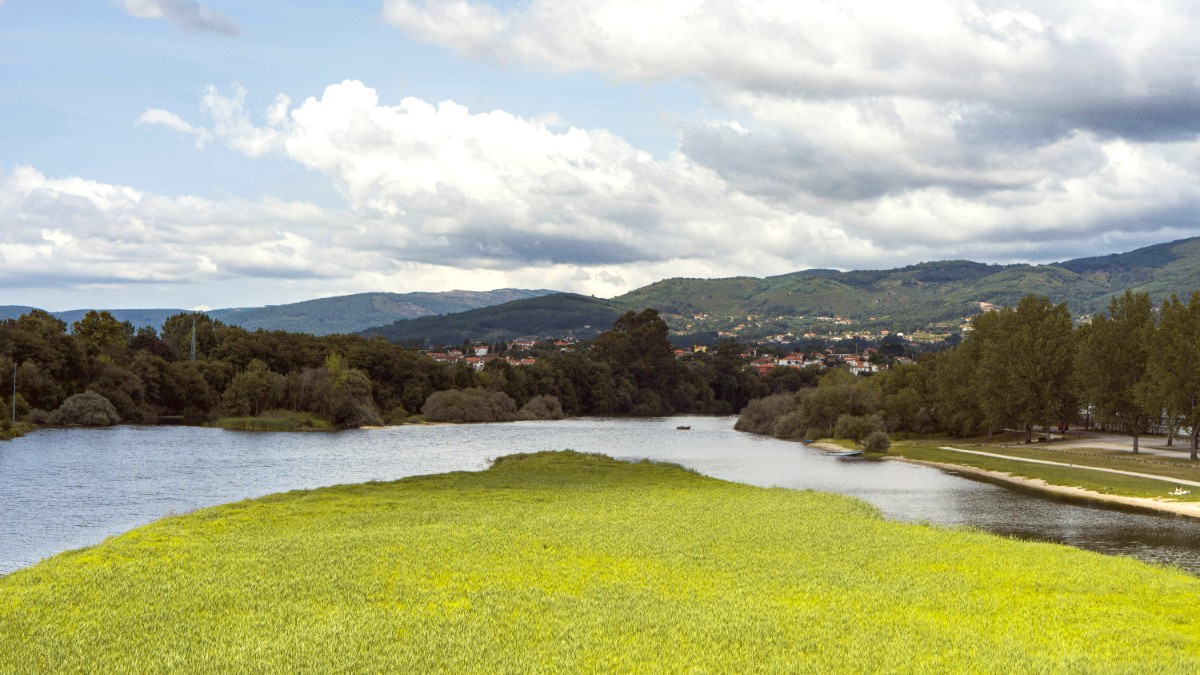
The North, Portugal
The city is a Mediterranean climate with noticeable oceanic influences. This brings generally mild temperatures and more rainfall than southern Portugal.
Coastal winds occur, especially on beaches. A windproof jacket proves useful. Summer can bring occasional heatwaves, though these remain typically less extreme than in inland Portugal.
High season (July & August) brings the warmest weather, perfect for beaches and major festivals, but also larger crowds and higher prices. Shoulder season (April-June & September-October) has pleasant temperatures and fewer crowds with lower prices, though rain is a possibility.
Low season (November-March) offers the fewest tourists and lowest prices. Expect colder temperatures and significant rainfall, making it less ideal for beach activities. Cultural exploration fits this time well.
Warm weather, festivals
Warmest weather, perfect for beaches and outdoor activities. Major festivals, including Romaria de Nossa Senhora d'Agonia.
Larger crowds. Accommodation and flight prices at their highest. Popular attractions may have queues.
Pleasant temperatures, fewer crowds
Temperatures stay pleasant. Fewer crowds than high season. Prices generally lower. Lush landscapes in spring, good conditions for hiking in autumn.
Possibility of rain, especially late autumn. Some beach facilities might not operate fully.
Fewest tourists, lowest prices
Experience the fewest tourists. Lowest prices for accommodation and flights. Enjoy a more authentic local experience without crowds.
Colder temperatures. Significant rainfall. Some tourist services may have reduced hours or close. Not ideal for beach activities.
Beach and Water Sports (surfing, windsurfing) find best conditions from June to September. Hiking and Cycling offer pleasant temperatures and less rain in April-May and September-October (shoulder seasons).
Cultural Festivals like Romaria d'Agonia occur in the third week of August. Book flights and accommodation well in advance for this period. Sightseeing and City Exploration fit best during shoulder seasons for comfortable walking without extreme heat or large crowds.
Highest in winter months. Packing appropriate waterproof gear is wise.
Occasional in summer, but typically less extreme than inland Portugal.
Common, especially on beaches. A windproof jacket can be handy.
Remain warm in September, extending beach season.
Spring months bring beautiful flora to the region.
Portugal belongs to the Schengen Area, influencing entry for many nationalities.
For EU/EEA/Swiss citizens, no visa. You can enter and reside freely. Schengen Area visa-exempt nationalities (e.g., USA, Canada, Australia, UK) have no visa for stays up to 90 days within any 180-day period. Your passport must have validity for at least three months beyond your intended departure date and an issue date within the last 10 years.
Your passport needs validity for at least 3 months beyond your intended departure from the Schengen area. It must have an issue date within the last 10 years and at least two blank pages.
Viana do Castelo brings good value compared to some major European capitals. Costs, however, vary depending on your travel style.
Your health and safety on travels are paramount. Viana do Castelo is a very safe city, but understanding common concerns and emergency procedures gives peace of mind.
No specific vaccinations are necessary for entry to Portugal from most countries. Routine vaccinations (MMR, DTP, Varicella) should stay current. Hepatitis A and B are recommendations for most travelers.
Consult your doctor or a travel clinic before your trip for personalized advice. Common health concerns like sunburn, heatstroke, and dehydration are preventable with proper precautions.
Dial 112 for all emergencies: ambulance, fire, police. Portugal has a public healthcare system (SNS) and private clinics/hospitals.
EU/EEA/Swiss citizens with an EHIC card access public healthcare at local cost.
For others, travel insurance highly advisable. Private clinics may offer quicker service.
Tap water in Viana do Castelo, and generally throughout Portugal, holds safety for drinking unless otherwise indicated. Food hygiene standards are high. Restaurants generally maintain cleanliness.
Tap water is safe; carry a Reusable water bottle.
Enjoy street food from busy vendors to ensure freshness.
Viana do Castelo is a very safe city with low crime rates. Petty crime like pickpocketing can occur in crowded tourist areas or on public transport during peak season or large festivals. Remain vigilant.
City center and tourist areas are safe. No high-risk neighborhoods identified.
Wildfires pose a risk during hot, dry summer months in rural areas. Stay updated on local news.
| Category | Details | Recommendation |
|---|---|---|
| Travel Insurance | Covers medical emergencies, trip cancellation, lost luggage, delays. | A comprehensive Policy is highly advisable for all travelers. |
| Emergency Number | 112 for Police, Ambulance, Fire. | Memorize this number. |
| Embassy/Consulate | Your country's representation in Lisbon or Porto. | Keep contact details handy for lost passports or serious issues. |